A look at the best online resources to learn Scala for free in 2023.
Even if you’re relatively new to programming or learning to code, you’ve probably heard of Java.
But have you heard about Scala?
It’s totally fine if not because you will do by the end of this article.
In fact, I’m here to give you all the reasons why you should learn Scala, especially if you already have an interest in Java.
Plus tell you about all the best online resources where you can start learning Scala for free!
But before that let’s take a look at some basic facts…
What is Scala?
Scala, short for "scalable language," is a high-level, statically-typed programming language designed for both functional and object-oriented programming.
Created by Martin Odersky, Scala was released publicly in 2004 to address some of the limitations of Java while maintaining compatibility with the Java Virtual Machine (JVM).
Scala is known for its concise syntax, rich type system, and an ecosystem that encourages robust, maintainable code.
It’s a high-performance language for general software applications.
Some people think that Scala is an extension of Java (which is why I mentioned Java at the start). But that’s not exactly true.
It is just completely interoperable with Java, let’s take a look at the differences:
Scala vs. Java
How They Stack Up
Since Scala runs on the JVM, comparisons with Java are hard to avoid.
Both languages share many features like strong static typing and garbage collection.
However, they are different in several main aspects:
- Conciseness - Scala offers a more concise syntax, enabling developers to write less boilerplate code.
- Functional Programming - Scala is a true hybrid language that seamlessly blends functional and object-oriented programming paradigms.
- Immutability - Scala emphasises immutable data structures, making it easier to reason about code and simplifies concurrent programming.
- Type Inference - Scala has a powerful type inference system, reducing the need for explicit type annotations.
- Library Support - Scala allows you to use Java libraries directly, offering a huge range of third-party libraries.
- Advanced Features - Scala provides advanced language features like pattern matching, case classes, and implicits, offering more flexibility to developers.
Benefits of Scala
Why Scala Matters
Scala provides many advantages that make it a great choice for demanding, scalable applications.
With key features like immutability, type inference, powerful pattern matching, and actor-based concurrency give Scala the edge over today's highly networked, data-intensive programs.
The fusion of object-oriented and functional programming in Scala enables developers to write robust, reusable code with less complexity.
Scala is beloved by developers for its concise, flexible syntax and ability to target the JVM.
Being JVM-compatible means it can easily integrate with Java codebases and libraries.
Scala is used at leading tech companies like Twitter, LinkedIn, Foursquare and more for building high-traffic web services and big data applications.
The Scala community continues to grow rapidly as developers discover how Scala can boost their productivity and programming enjoyment.
As with any programming language, to learn the secrets of Scala you need to have the right resources available.
Here are 9 great online platforms to learn Scala for free:
#1 - The Official Scala Docs
The Official Scala Documentation site offers a cool suite of learning resources for both beginners and experienced programmers.
Starting with straightforward installation guides, the platform provides a "Tour of Scala" to introduce bite-sized core language features.
It also features a Scala 3 Book, comprised of brief lessons aimed at thorough understanding.
As well as the recommendation of a selection of Massive Open Online Courses (MOOCs) and books—both printed and digital—to deepen your Scala knowledge.
Finally, they have tutorials that provide step-by-step guides to build complete Scala applications.
#2 - Scala Exercises
Scala Exercises is an open-source platform designed to teach Scala tools and technologies through a progression of exercises that adapt to your skill level.
Featuring code samples for visual understanding, the platform allows you to solve exercises to validate your grasp of key topics.
Beyond increasing your personal skills, Scala Exercises promotes community engagement by allowing you to share your progress and even contribute to the platform by improving existing exercises or adding new ones tailored to specific Scala libraries.
#3 - Scala Center
The Scala Center is an independent, not-for-profit organisation, with a focus on open-source initiatives and education.
Its mission focuses on guiding the Scala community, coordinating the development of open-source libraries and tools, and delivering high-quality educational content.
Among its current priorities are raising awareness of Scala's capabilities, simplifying the onboarding experience for newcomers, ensuring robust and user-friendly tooling, and encouraging sustainability and governance within the Scala ecosystem.
The Center aims to make Scala more accessible, reliable, and maintainable for everyone from programmers and teachers to scientists and is full of great learning resources.
#4 - Educative
Educative's "Learn Scala from Scratch" course is a detailed, text-based program designed to give you a thorough foundation in Scala, starting from the basics and advancing to complex topics like higher-order functions and object-oriented programming.
The course is structured across various sections, covering Scala's history, variables, types, operators, string manipulation, collections, control structures, and functions.
Unique features like hands-on coding environments within the browser, text-based lessons that are twice as fast as video tutorials and zero set-up requirements make the learning experience quite seamless.
In addition, it provides built-in assessments and completion certificates that will allow you to both have an understanding of and showcase your Scala skills.
#5 - TutorialsPoint
TutorialsPoint's Scala Tutorial is tailored for beginners, offering a reader-friendly introduction to Scala fundamentals.
The tutorial is structured in a way that, once completed, you should have a moderate level of proficiency in Scala, setting you up for more advanced studies.
For this tutorial, they say that while familiarity with Java syntax is advantageous for understanding Scala—given Scala's JVM basis—even those with backgrounds in other languages like C, C++, or Python will find it easier to quickly grasp Scala concepts.
#6 - GeeksForGeeks
GeeksforGeeks offers an "Introduction to Scala Tutorial" that is a great guide for learners interested in Scala programming.
The tutorial covers a wide range of topics, from the basics such as setting up the Scala environment and writing a 'Hello World' program to more advanced topics like Object-Oriented Programming (OOP) concepts, methods, strings, Scala packages, and traits.
It also delves into collections, providing a rounded learning experience that scales with your growing understanding of Scala.
#7 - All About Scala
All About Scala is a platform that offers a beginner-friendly tutorial series dedicated to easy learning of Scala programming.
The platform is recognised as an official learning resource by Scala's own documentation and goes beyond the basics by offering a rich catalogue of online tutorials, with topics from Scala foundations to specialised subjects like Apache Spark and data science.
Its Scala for Beginners book, available on Leanpub, is a step-by-step guide for learning and features real-world project building with Akka HTTP.
The platform's extensive list of chapters includes insights on object-oriented programming, functional thinking, various types of collections, dependency injection, concurrency with futures, and even tooling with SBT and IntelliJ IDEA, making it an excellent resource for mastering Scala.
#8 - Java T Point
Java T Point's Scala Tutorial offers a well-rounded learning experience for both beginners and professionals, covering the essentials to advanced concepts in Scala.
The tutorial covers a broad range of topics, from data types and conditional expressions to more advanced subjects like object-oriented programming concepts, method overloading, inheritance, and file handling.
It also looks into specialised areas such as tuples, string interpolation, and collections.
While prior knowledge of C and Java is recommended, the platform assures high-quality content that is free from issues for learners.
#9 - Cognitive Class
Cognitive Class's Scala 101 course, part of the Typesafe Introductory Scala for Data Science Curriculum, is engineered to give you the skills you need to proficiently use Scala in data science applications.
The course aims to teach you a robust understanding of Scala's fundamental principles, tooling, and development process, along with exposure to its advanced features.
While experience with Java or another object-oriented language is preferred, the course makes no assumptions about prior Scala or data science knowledge, making it suitable for newbies.
To conclude, learning Scala has never been easier with so many awesome online resources readily available to start learning for free.
As we learnt briefly, Scala is a very unique programming language in the way that it’s compatible with Java whilst being a bit different.
The great thing about learning to code is that there are so many exciting languages to learn like Scala, that you can expand your knowledge to languages that are increasingly highly sort after within the tech industry.
Many companies are either using or migrating to Scala, so if it wasn’t on your radar before, now might just be the right time to jump in.
And you never know, you might just scale new heights with Scala!
From your fellow ever-growing dev,
Cherlock Code
💙 If you liked this article...
I publish a weekly newsletter to a community of ever-growing developers, seeking to improve programming skills and stay on a journey of continuous self-improvement. Focusing on tips for powering up your programming productivity 🚀.
Get more articles like this straight to your inbox.
And stay in touch on 🐦❌ @evergrowingdev
And if you're looking for the right tools to build awesome things, check out Devpages.io, an ultimate hub I built with 100s of developer tools and resources 🛠


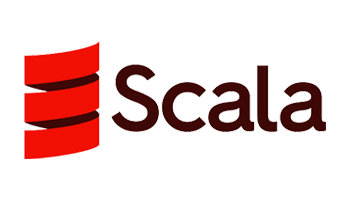
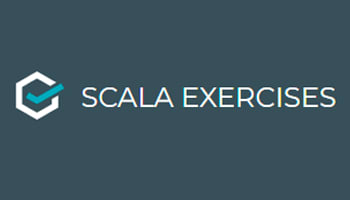
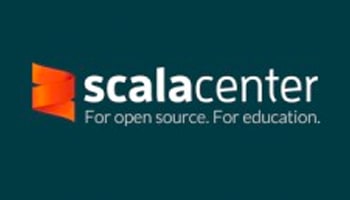
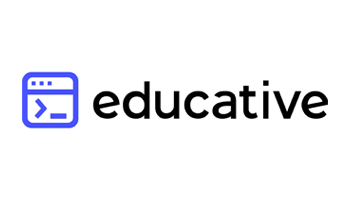
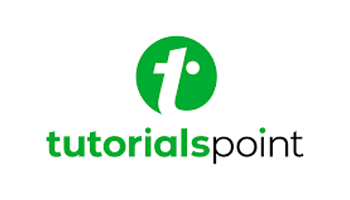
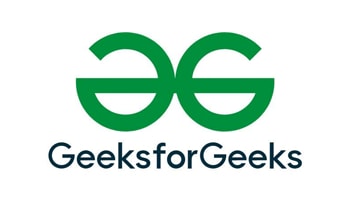
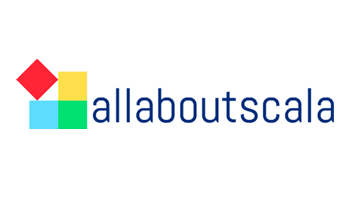
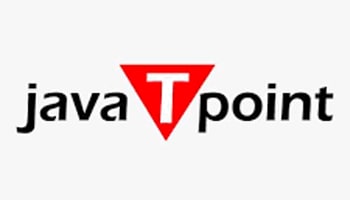
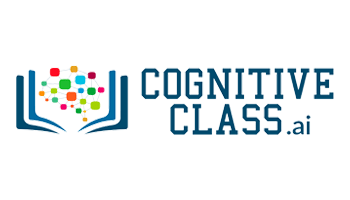


Top comments (4)
Awesome. I love Scala, been using it for nearly 9 years now, some great resources here as well.
I do however highly recommend also checking out RockTheJVM. They have fantastic free courses on their Youtube channel (Scala at Lightspeed playlist among others), and then when you are keen to pay, their advanced courses on their platform are fantastic.
Nice one thanks, RockTheJVM is a great resource!
Scala is a powerful programming language that blends functional and object-oriented programming paradigms. If you're eager to explore its secrets, here are nine excellent resources to help you master Scala:
"Programming in Scala" by Martin Odersky, Lex Spoon, and Bill Venners: This definitive book by the creator of Scala provides in-depth insights into the language, covering both its theoretical foundations and practical applications.
Coursera's "Functional Programming Principles in Scala": Offered by Martin Odersky himself, this online course covers the fundamentals of functional programming using Scala. It's a great way to get hands-on experience with the language.
Scala's Official Documentation: The Scala documentation is an essential resource for learning the language's features, syntax, and standard libraries. It includes tutorials and examples to help you understand concepts thoroughly.
"Scala School" by Twitter: This comprehensive online tutorial by Twitter provides an interactive way to learn Scala's core concepts. It's particularly useful for those new to the language.
"Effective Scala" by Twitter: This guide focuses on best practices and idiomatic coding in Scala. It offers tips to write clean, concise, and efficient Scala code.
YouTube Channels: Channels like "Academind," "ScalaCourses," and "Debasish Ghosh" offer video tutorials, lectures, and discussions that delve into Scala's features and applications.
"Functional Programming in Scala" by Paul Chiusano and Runar Bjarnason: This book not only teaches Scala but also emphasizes functional programming principles. It's a great choice for those aiming to master both the language and functional programming concepts.
Scala Exercises: This online platform offers interactive coding exercises and challenges to help you practice and reinforce your Scala skills.
GitHub Repositories: Explore open-source projects written in Scala on GitHub. Studying real-world code can provide valuable insights into how Scala is used in practical scenarios.
why aren't you posting, instead of commenting under another post?